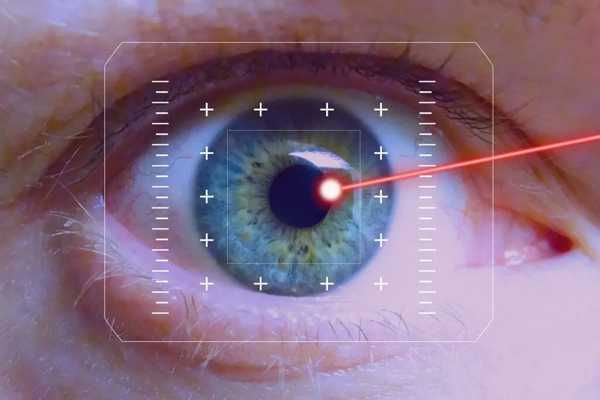

Thinking about living without glasses or contact lenses? Laser vision correction could help you achieve sharper eyesight and long-term freedom from corrective wear. Here’s what you should know before deciding if this option is right for you.
Thinking about living without glasses or contact lenses? Laser vision correction could help you achieve sharper eyesight and long-term freedom from corrective wear. Here’s what you should know before deciding if this option is right for you.

Procedures such as LASIK and PRK correct vision by reshaping the cornea so that light focuses properly on the retina. These treatments effectively address refractive errors including myopia, hyperopia, and astigmatism. For many patients, laser correction offers a safe and efficient way to enhance vision with minimal downtime. However, individual results can differ based on eye structure, age, and other personal factors.
When considering laser eye surgery, understanding the different techniques is essential. LASIK, the most commonly performed procedure, involves creating a thin corneal flap using a laser, followed by precise reshaping of the tissue beneath. PRK removes the cornea’s surface layer before reshaping, making it a suitable choice for those with thinner corneas. Another innovative method, SMILE, uses a small incision and advanced laser technology for minimal disruption. Consulting an experienced ophthalmologist can help determine which method aligns best with your visual needs and eye health.
A comprehensive pre-surgery eye exam is a critical first step in determining your suitability for laser vision correction. During this assessment, your doctor will evaluate the overall condition of your eyes, measuring factors like corneal thickness, curvature, pupil size, and refractive error. The exam also helps identify any underlying eye conditions that could impact the outcome. Your ophthalmologist will review your health history and any medications to ensure that the chosen treatment is both safe and effective for your situation.
Laser vision correction procedures are typically brief and performed on an outpatient basis, often lasting less than 10 minutes per eye. Numbing drops are applied to prevent discomfort, and in LASIK, a gentle suction ring creates a corneal flap before the laser reshapes the tissue. You may feel mild pressure but no pain. Once the procedure is complete, you will rest for a short time before being cleared to go home. Knowing what to expect beforehand can help you feel confident and relaxed throughout the process.
Recovery from laser eye surgery is generally quick, but proper aftercare plays a major role in achieving the best results. It’s common to experience mild irritation, light sensitivity, or blurry vision immediately after the procedure, which usually improves within 24 hours. Avoid touching your eyes and use prescribed eye drops as directed to reduce dryness and promote healing. Most people resume daily activities within one or two days, though strenuous exercise, swimming, and eye makeup should be avoided for at least a week. Regular follow-up appointments will ensure that your recovery progresses smoothly.
Many patients enjoy lasting improvements in vision after laser correction, often achieving 20/25 vision or better. Results can remain stable for years, though natural age-related changes such as presbyopia may eventually affect near vision. Regular eye examinations remain important even after surgery to monitor long-term eye health. While most individuals experience excellent outcomes, a small number may require touch-up procedures to maintain optimal clarity. Setting realistic expectations helps ensure satisfaction with the long-term results.
Although laser vision correction is highly safe, it carries certain risks that should be carefully reviewed with your doctor. Temporary side effects such as dry eyes, glare, or halos at night are common during the early healing period. More serious complications like infection or corneal damage are rare but possible. Each patient’s risk profile differs based on eye health, lifestyle, and treatment type. Having a detailed discussion with your ophthalmologist will help you weigh potential risks against the expected benefits.
Laser vision correction costs can vary depending on the procedure type, the surgeon’s expertise, and the clinic’s location. LASIK typically ranges between $2,000 and $3,000 per eye. Since most insurance policies classify it as an elective treatment, coverage is often limited. Some clinics offer financing or payment plans to make the cost more manageable. When evaluating expenses, consider the potential long-term savings from reduced reliance on glasses and contact lenses. Transparency about fees and inclusions is key to making an informed investment in your vision.
After undergoing laser vision correction, patients often experience a noticeable improvement in convenience and daily comfort. However, maintaining eye health through small lifestyle adjustments is essential. Wearing sunglasses outdoors protects your eyes from UV damage, and staying hydrated helps reduce dryness. Limiting screen time and taking breaks during digital activities can also prevent strain. By incorporating healthy habits into your routine, you can preserve the benefits of your new vision and support long-term eye wellness.
Laser vision correction marks the beginning of an ongoing commitment to maintaining good vision. Scheduling routine eye exams ensures early detection of any changes or complications. Protecting your eyes from excessive sunlight, dry air, and digital fatigue contributes to lasting results. A diet rich in omega-3s, vitamins A and C, and antioxidants further supports ocular health. By staying proactive about eye care, you can enjoy the clarity and confidence that laser vision correction brings for years to come.